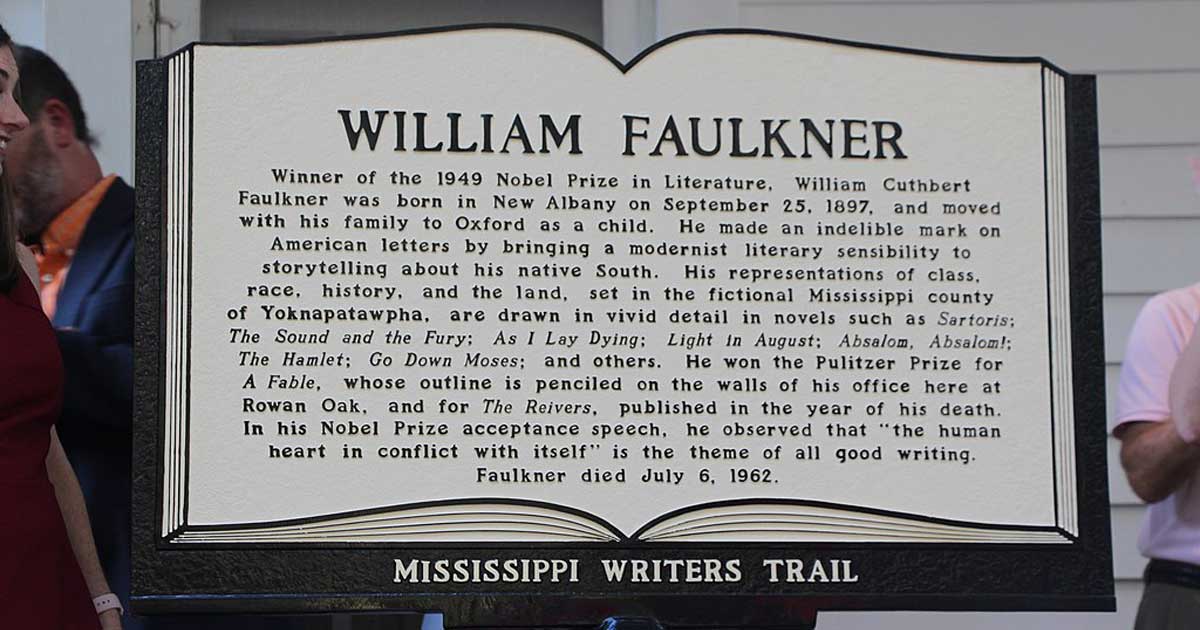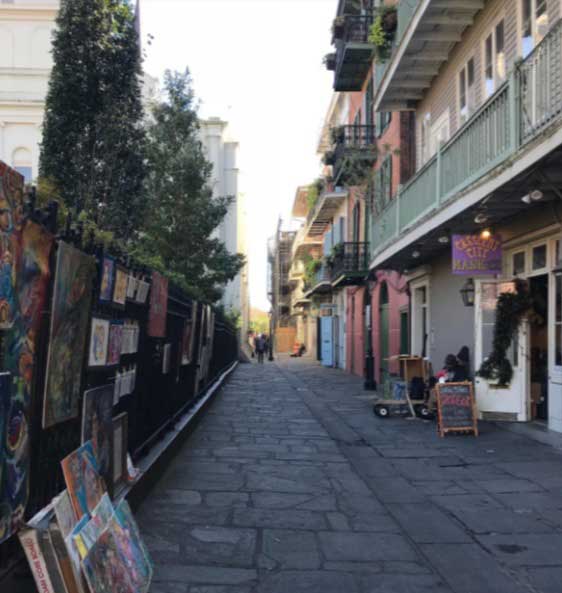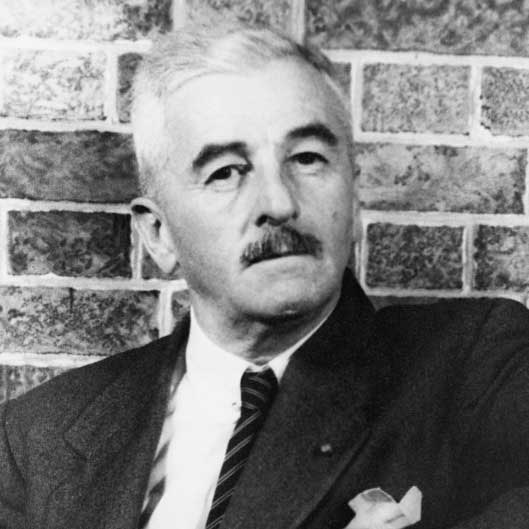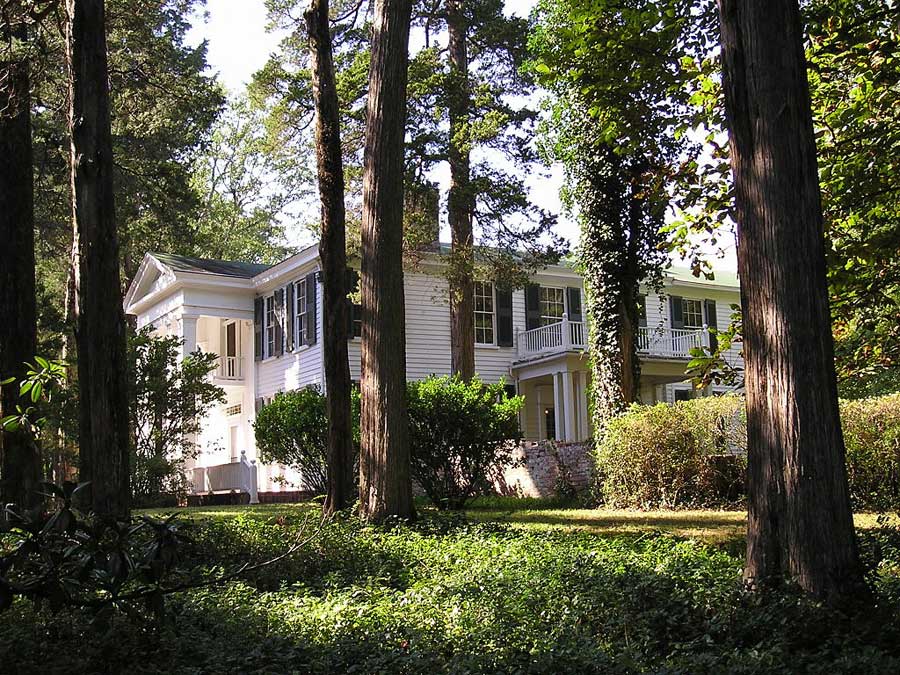It was the summer of 1925, and two local fishermen befriended the mysterious new tenant who spent the summer in a bungalow overlooking the beach in Waveland. He was a writer, they said…
By Eddie Coleman, Assistant to the Director, Hancock County Historical Society
Although we tend to think of Faulkner as a native of Mississippi, which he was, he also spent time in the French Quarter of New Orleans in the 1920s, as did many American Southern writers. While F. Scott Fitzgerald, Ernest Hemingway, and their wives as well as other members of the Lost Generation expatriated themselves to Paris, some American writers went to New Orleans, whose French Quarter gave them the feel of Paris.
Faulkner spent the first half of 1925 in New Orleans, and during that summer he rented a house on the corner of Beach Boulevard and Market Street in Waveland. Ducre Bourgeois and his cousin Edward Bourgeois met Faulkner one night as they passed his house on their way to the beach to go floundering. As people do, the young men stopped and began talking to the visitor. At this time Faulkner was not a famous or even well-known author. He was just a visitor renting a house on the beach for a few months, and the young men just wanted to be neighborly. Faulkner told them that he had left New Orleans and the French Quarter to get away from the alcohol. Being friendly they told the visitor that they knew where they could find some white lightning, not an uncommon thing in the area at that time. The Bourgeoises brought him a half-gallon the next night, and they all drank until it was time for the cousins to go crabbing. As Ducre told the Sea Coast Echo writer in later years, “Faulkner was a fine-looking man in his late 20s, but he was a peculiar fellow.” Faulkner went floundering with the cousins a time or two, but he thought floundering was “too much work and too much walking.”
During the following summer days, the young cousins could always tell when Faulkner was writing and that he wanted to be left alone and not be disturbed. As Ducre told the Echo writer, “You could always tell when he was writing because of the mess; the entire porch would be covered with paper and books.” Faulkner didn’t want people to know what he was writing about so that when the cousins stopped by to visit, he covered everything he was working on with blank sheets of paper. The cousins discovered that Faulkner never drank and hardly ate when he was involved in writing. What they learned was that, like most writers, Faulkner wanted to devote his time, energy, and efforts to his craft, focusing on what he had to say and how he wished to say it. Ducre also said that Faulkner wrote an entire book in three days. In addition, he was aware of only one book that Faulkner based in Bay St. Louis. That book dealt with three young African American boys who left Bay St. Louis on a trip to Memphis. Could it be The Reivers? It appears that Faulkner stayed pretty much to himself except for the Bourgeois cousins. They didn’t know of any girlfriends around or of any visitors except for themselves. Apparently, Faulkner stayed on the beach for a few months that summer of 1925, then he just left. The Bourgeoises didn’t know where he went and never saw him again. Later they heard that Faulkner returned to Ole Miss. Although the house where Faulkner stayed was demolished in the 1947 hurricane, the house that was built on the property to replace it was called Faulkner Heights. Bourgeois and his wife, Mazie, lived on Market Street until their deaths, just across the street from where Faulkner stayed and wrote. According to cemetery records, Ducre died on November 9, 1988, and Mazie died on April 17, 1991. SOURCES: Earley, James et.al. Adventures in American Literature. New York: Harcourt, Brace and World, Inc., 1968. Heathcock, Brenda. “Waveland Man Recalls Time Spent with William Faulkner in Hancock.” Sea Coast Echo (Bay St. Louis, MS), 10 October 1985. New Orleans Historical. “Faulkner’s House.” neworleanshistorical.com, 30 Dec. 2021. “William Faulkner.” Wikipedia.com, 10 December 2021. (Editor’s note: If any of the children or grandchildren of Ducre or Edward Bourgeois remember either gentleman talking about their meeting with Falkner, please get in touch with the Historical Society and share this additional information.) Enjoy this feature?
Enjoy the Shoofly Magazine? Reader donations help underwrite correspondents who write about and photograph our community.
Use the button below to join our Readers’ Circle! Comments are closed.
|
Categories
All
Archives
July 2024
|
Shoofly Magazine Partners
Our Shoofly Partners are local businesses and organizations who share our mission to enrich community life in Bay St. Louis, Waveland, Diamondhead and Pass Christian. These are limited in number to maximize visibility. Email us now to become a Shoofly Partner!

































 RSS Feed
RSS Feed























